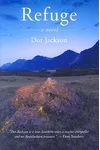Picture a Southern storyteller who spun tales as rich as the Appalachian hills—meet Dot Jackson! Born in 1932 to Appalachian parents in Miami, Florida, this Pulitzer-nominated journalist and novelist captured the heart of the American South with her vivid prose and deep love for its culture. Her novel Refuge and her tireless work preserving Appalachian traditions made her a regional treasure.
From gritty newsrooms to the quiet Blue Ridge Mountains, Jackson’s life was a tapestry of adventure, storytelling, and advocacy. Let’s dive into the journey of this remarkable woman whose words still echo through the hollers.
The Making of Dot Jackson
Dorothea 'Dot' Jackson was born to William and Doretta Mauldin, whose roots stretched deep into South Carolina’s Keowee River Valley. Raised in Miami, she traded college dreams of music and dance for a typewriter, drawn to the raw pulse of journalism. Her career began in Southern newsrooms, where she honed her craft at papers like the Charlotte Observer. Covering everything from murder trials to snake-handling prayer meetings, Jackson’s fearless reporting earned her multiple Pulitzer Prize nominations and a National Conservation Writer of the Year award. Her Appalachian heritage called her back to the Carolinas, Georgia, and beyond, shaping her voice as a chronicler of mountain life.
Dot Jackson’s Unforgettable Stories
Jackson’s writing blended the grit of journalism with the soul of fiction. Her debut novel, Refuge (2006), follows Mary Seneca 'Sen' Steele, a Charleston woman fleeing an abusive marriage to find solace in the Appalachian Mountains. Praised as 'intensely readable' by author Dori Sanders, the novel weaves family secrets, love, and loss against a backdrop of rugged landscapes. Its thick regional dialect and vivid imagery make it a love letter to Appalachia.
Beyond fiction, Jackson co-authored nonfiction gems like The Catawba River (1983) with Frye Gaillard, a lyrical exploration of Southern waterways, and Keowee: The Story of the Keowee River Valley (1995) with Michael Hembree, delving into her ancestral homeland. Her journalism, infused with folklore and oral histories, preserved the voices of mountain folk. Jackson’s style—earthy, evocative, and steeped in place—earned her a spot in the South Carolina Academy of Authors in 2010.
She also lent her voice to films by Neal Hutcheson, like The Last One, about moonshiner Popcorn Sutton, and The Outlaw Lewis Redmond, celebrating the Upcountry’s rebellious spirit. Each work showcased her knack for capturing the beauty and brutality of Appalachian life.
Why Dot Jackson Matters
Dot Jackson didn’t just write about Appalachia—she lived it. As co-founder and on-site manager of the Birchwood Center for Arts and Folklife in South Carolina’s Blue Ridge Mountains, she championed the region’s music, crafts, and stories. Her efforts ensured that Appalachian traditions thrived, passing them to new generations. Her writing, lauded by peers like Ron Rash, gave voice to a culture often misunderstood, blending humor, heartache, and resilience.
Jackson’s legacy endures in her stories and the cultural center she helped build. When she passed in 2016 at 84, she left behind a roadmap for celebrating the South’s untamed spirit. Her work reminds us that home is where the heart finds refuge.
- Born: 1932, Miami, Florida
- Key Works: Refuge, The Catawba River, Keowee
- Awards: Pulitzer Prize nominations, National Conservation Writer of the Year, South Carolina Academy of Authors inductee
Snag Refuge and dive into Dot Jackson’s soulful Southern saga! Her stories are a wild ride through the heart of Appalachia—perfect for anyone craving a tale as bold as the mountains themselves.
